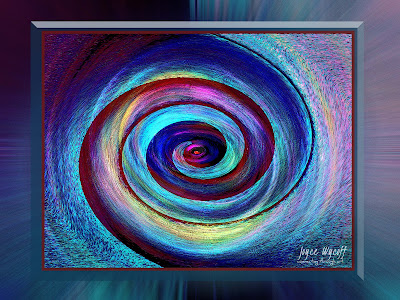Maslow’s wise thought rests on one tiny word: can.
I read them and think: I can be anything. Then wonder: does that mean if I decide to be a musician, I can be a musician? Yes … but. It doesn't tell the whole story. There is something missing or implied in that simple word which he says opens the door to inner peace.
You could say it’s talent and that would be true, partially. Sometimes, as children, we do something a little bit better than others and people encourage us, find us teachers to guide our efforts, and we get better, gaining even more attention and encouragement. Eventually, we might claim art or poetry or golf or music or cooking as a significant part of our identity. It grows into something we must do.
However, what we can be is more than talent and teachers. It’s about what we do and how it makes us feel … time after time. It’s about doing something that makes us feel so connected, engaged, and joyful that we want to do it again … and again!
Early encouragement can make a huge difference, but it isn’t everything. There seems to be some tiny seed deep within us which keeps trying to grow even when it falls on rocky ground. For me, the impulse to write came early, hand in hand with its dark cousin, rejection. I wrote a play in the fourth grade which was rejected because my writing was a tiny, unreadable scribble. First rejection.
In college, while typing student records as part of my work scholarship, I started writing poetry: dark, angsty lines no one wanted to hear. Two years of creative writing classes yielded nothing of interest to my professor, class mates or even self. I chose to major in business so I could get a job.
Years of periodic submissions to magazines met the same fate: rejection. Finally I launched my own 8-page newsletter (long before internet) where I wrote about anything that interested me and which eventually landed me a book contract. Something in me wanted to write in spite of the rejection and an almost total lack of interest or encouragement.
What is that something that leads us toward art or sports or gardening or raising children? Whatever it is, it’s where we find our peace; it’s what, as Maslow says, we must be.
As I write this week’s thoughts on Sweet Peace, it makes me think something similar is in process. My first husband came home from Vietnam with a chronic illness that stimulated my interest in health and the function of our bodies. There was no internet, of course, so I stalked libraries and bookstores for books on health and became a fan of Adele Davis, the early, and often controversial, nutritionist.
That fascination with health and nutrition plus the psychology of eating and food has continued through the years and brought me to Sweet Peace in my current experiment of one. “What one can be, one must be."
This is more than a search for peace with food and body; it is part of the journey toward making peace with myself.










